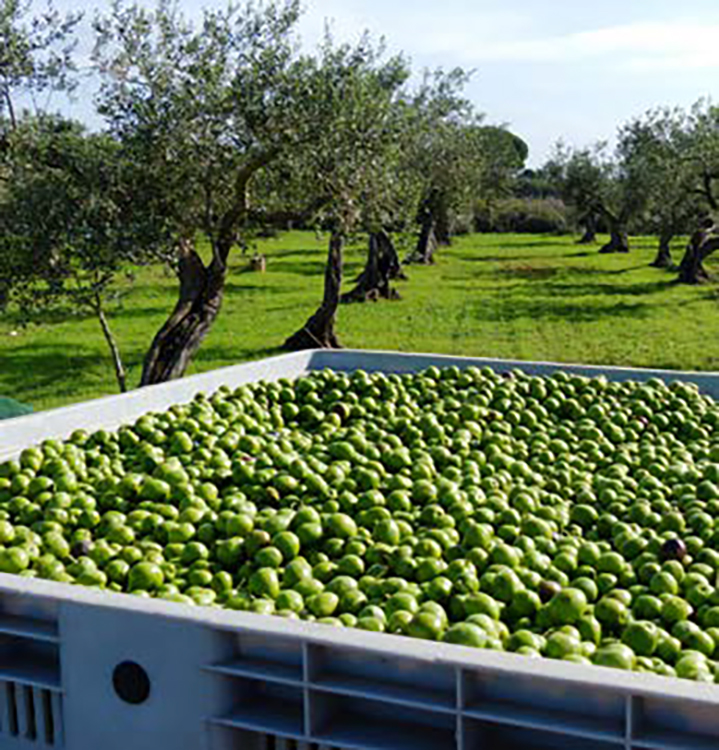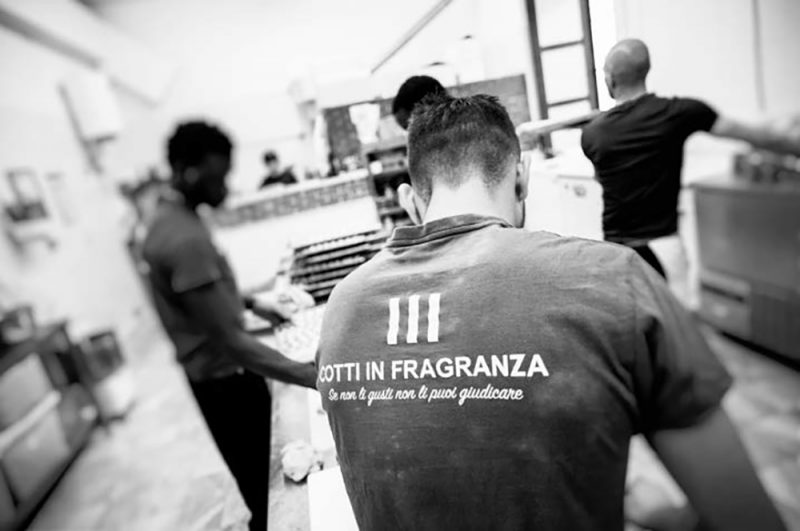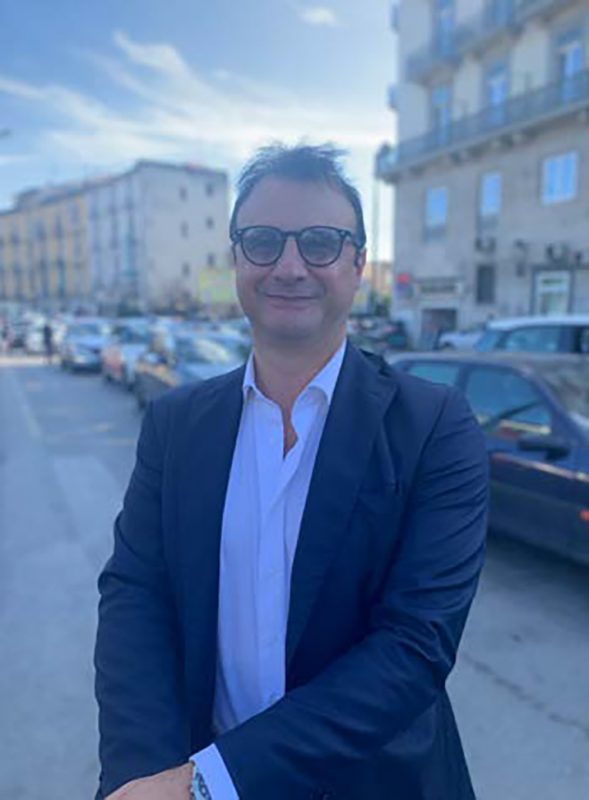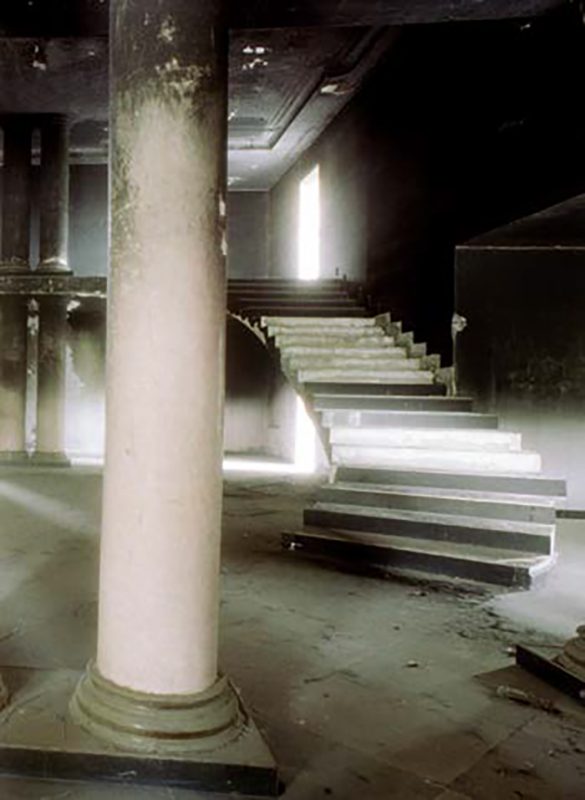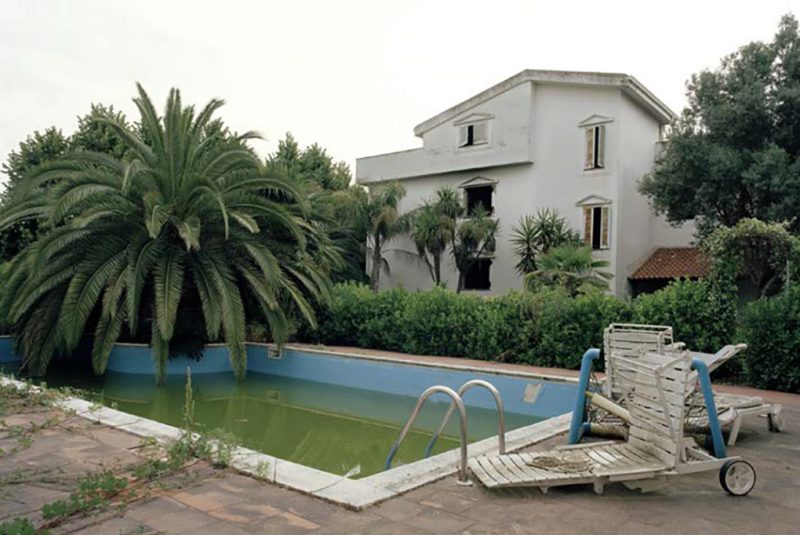This article originally appeared in the Winter 2021/2022 print issue of Quench Magazine.
The Mafia is becoming more and more sophisticated.
No longer haphazardly shooting in open streets, the infamous criminal organization instead is moving higher up in society, attempting to deflect attention away from itself. Wine and gastronomy are still an important source of income for the loosely organized association of criminal gangs, often referred to as La Cosa Nostra, but in Italy some brave individuals are fighting back.
“Today the Mafia shoots less and they have put on their fine clothes,” explains Valentina Fiore, general secretary of Libera Terra, a non-profit cooperative dedicated to rebuilding land seized from the mafia. “They are becoming more and more sophisticated and to us citizens, it seems that the mafia no longer exists. In this way, the Mafia can work in peace, more and more often in northern Italy and abroad.”
Born in the mid-1990s, Libera Terra works in Sicily and other parts of southern Italy, taking care of property and land confiscated from the Mafia by the Italian government. Libera Terra produces wine, olive oil, tomatoes, wheat, and other agricultural products. Today, they provide work for over 160 people.
The wines from Libera Terra’s winery Centopassi consistently win awards in the Italian wine guides. The organization also works with education and prevention in schools and workplaces, trying to penetrate in areas where the Mafia is, or has been, strong.
“The goal is to create a positive chain; create jobs, sell our products, raise money, be able to hire more people and show that you can survive without belonging to the Mafia,” Fiore says.
In contrast to the Hollywood portrayal of the Mafia as urban criminals, the organization actually has its roots in agriculture. Their genesis can be traced back to the 19th century, when a proto version of the Sicilian Mafia began to take care of land owned by noble families. Well over a century later and what started as a loose body of former bandits became a feared crime syndicate, often operating with impunity on the island.
For a long time the Italian government was unable to do anything positive with what they confiscated. This allowed the mafia to say ‘see what happens when the government takes over?’
“Therefore, it is extra important that the government, in this case with our help, shows that when land is confiscated, it is not just allowed to decay,” says Fiore. “In some villages, the mafia provided work for eighty percent of the population. A void that had to be filled when the illegal jobs suddenly disappeared.”
The Italian Mafia have found themselves in a golden position with the current global health crisis. Today, they’re recruiting new people, buying clean businesses, and finding ways to benefit from new needs in healthcare, all to gain influence and advance their position.
Ironically, Fiore refers to the Mafia as a “chronic virus.”
“They take advantage of the difficult situation after the pandemic and destroy the legal economy,” she says. “The Mafia has large amounts of cash available and can therefore offer simple and fast solutions to those who are having a hard time, both in Italy and abroad. Today, serious political solutions are more important than ever.”
Libera Terra also works organically. “It is important to give dignity not only to us humans but also to the land we work with,” Fiore continues.
Seventy percent of their products are sold through Italy’s largest food chains.
“We, at Libera Terra, hope that when people go shopping and see our products, they are reminded that the Mafia still exists and that the battle has not yet been won,” she says.
Another organization is called Cotti in Fragranza, which works in Palermo’s juvenile prison, Malaspina. Here, inmates are trained to become bakers. The name Cotti in Fragranza roughly translates to “cooked on the bare deed,” a name that plays with the Italian words for “taken on the bare deed” (colti in fragranza).
“The chance of returning to the criminal world once you are out, is great, but it decreases drastically if you learn a profession while in prison,” says Nadia Lodato, who is the initiator of the project together with Lucia Lauro.

Olives 
Cotti in Fragranza
Lucia and Nadia have also opened a bistro in central Palermo called Al Fresco, and soon they will open a small hotel.
“Most of the former prisoners stay with us when they are released and continue to work on the project. The funny thing is that they make more money than us, who work with social prevention,” says Lodato, who laughs and then quickly adds “every person we get away from the criminal world is worth all the gold that shines in the whole universe.”
CAMPANIA
The town of Casal di Principe is just outside Caserta, a half-hour drive from Naples. The city consists of simple residential buildings, small shops and a bar. Here people have lived on agriculture since time immemorial.
The population is poor despite the large cultural monuments that exist in the area, which could make it possible for the town to make a living from tourism. For example, the large castle La Reggia di Caserta, a copy of Versailles, once housed the Spanish royal family Bourbon, who ruled in southern Italy before the country was united in 1861. Despite its historical importance and grandeur, after years of neglect, it is now a dilapidated castle park. The impressive halls and rooms, despite being worn and neglected are so beautiful that you lose your breath. In theory, the castle has nothing to be ashamed of in front of its French counterpart. Also in the area is Italy’s second-largest Roman arena, after the Colosseum, called Santa Maria Capua. This is where the gladiator Spartacus trained and started his famous rebellion against the Roman emperor. Against all odds, he persevered with his men for over two years against a formidable Roman army.
Casal di Principe is also the headquarters of la Camorra, the Mafia from Naples. Here the Casalesi clan held power until year long investigations eventually put the highest-ranking members of the criminal organization behind bars. When the Mafia bosses were imprisoned, the large land estates and luxury villas that had been under the control of the Casalesi clan were confiscated.
“We are the only two people left,” says Vincenzo Letizia, co-manager of the Vitematta winery in the small town, which is also known for its production of buffalo mozzarella.
He says that the rest of his schoolmates have either moved or are in prison.
Letizia remembers how he got stopped one day as a little boy by one of the bosses in his big nice new car.
“We went and bought ice cream. This was the mafia´s strategy to bind children and young people to themselves from an early age. I thought it was exciting,” he says.
When he got home, he was scolded by his mother, who was beside herself with anger.
“After that, my father was always waiting for me outside the door until I came home to be sure I did not end up in the wrong company.” And he didn’t.
“I chose to stay in Casal di Principe even though the prospects were not the best. In the area, agriculture has always been a source of income, so I invested in wine production.”
At Vitematta, Letizia works with traditional grape varieties such as the green grape asprino, which is excellent for sparkling wines. Production increases every year, and in the past year they have also won awards in several of the Italian wine guides.

Giovanni Allucci 
Confiscated villa 
Confiscated villa
“It’s fun with awards and attention, but that’s not our goal,” Letizia notes. “In addition to creating jobs, we also accept disabled people who can come here and participate and work. We try to give back as much as possible to Casal di Principe, which needs hope for the future.”
Another person who has spent his whole life fighting la Camorra is Giovanni Allucci. In 1998 Allucci started the organization Agori-nasce, the name of which refers to the Italian words; agricultura (agriculture) and nascere (birth). His goal is to convert confiscated land into agriculture.
“Right now, we are working on a project to turn a large, confiscated property into a buffalo farm with mozzarella production,” he says.
Allucci is a quiet and energetic man who has devoted his whole life to trying to prevent criminal organizations from advancing. To-day, Agorinasce works in six municipalities in the area around Naples and is responsible for 157 confiscated properties.
The latest information shows that the various mafias are changing and becoming more and more sophisticated. To understand the phenomenon even better, it is enough to follow the latest reports: the criminal economy is worth thirty percent of the official economy in the province of Caserta and the mafia economy in Italy is estimated at a value of fifteen percent of the country’s GDP.
The leading “products” are drugs, prostitution, and extortion, which raise almost € 20 billion each year. Cigarette smuggling and waste trading are missing from the budget. Not only that, organized crime registers a total of about € 150 billion in revenue and, compared to just over € 35 billion in costs, has profits of over € 115 billion. Alarming figures that even exceed the annual turnover of some European energy giants.
“The criminal organizations will certainly benefit from the corona crisis and the unemployment it brings.
How much it will affect and exactly how we do not know yet. We are awaiting future investigations,” says Allucci.
Together with Allucci I visit a confiscated farm called La Balzana. It is two hundred hectares in size. The walls on the beautiful but dilapidated houses are full of graffiti and all the windows are broken.
“They always do so, la Camorra, as soon as a land or villa is confiscated, they go here and destroy everything so that we have more work to do,” says Giovanni without changing facial expression.
“The idea is to create a buffalo farm where twenty different producers can share the land and produce mozzarella. We will have an education centre and we also want to get university students to come here,” Giovanni explains as we walk around the large property.
Another villa, which belonged to a clan member of Casalesi in Casal di Principe, has been converted into a pizzeria. On the wall hangs a photo of Giovanni Falcone and Paolo Borsellino, the two heroic judges who dedicated their lives to fighting the mafia but were murdered in the mid ‘90s. Inside the restaurant the decor is simple, and around the tables are two school classes from Milan.
“This school from Milan comes here every year on a study trip with high school classes,” Allucci says. ”It is a big part of our work to engage with students and teachers here in the area and other regions.”
“The people who work with us believe in what they do, otherwise they would not have the strength.” He says he still has hope. That is something that he will not give up.
“I think we make a difference. I have never had the drive to make money or to become famous. This is my life,” he says humbly.
Food, agriculture, wine – and brave people – are without a doubt one of the recipes for winning against the advance of la Camorra and the mafia. May today’s brave fighters endure longer than the rebel gladiator Spartacus.
Åsa Johansson came to Italy from Sweden in 2001 because she loved Italian films from the ‘50s and ‘60s and wanted to learn Italian. It was love at first sight. Following a degree in political science and journalism at the University of Florence, she now writes about wine, food, and travel for Swedish, Norwegian, Italian and Canadian publications. Åsa travels back to Sweden on a regular basis to hold courses and seminars on Italian wines. Since 2019 she produces her own extra virgin olive oil, La Collina Blu, from the olive trees on the Tuscan hills where she lives with her husband Stefano and two children. Her latest project is Sweden’s first podcast about Italian wine.

